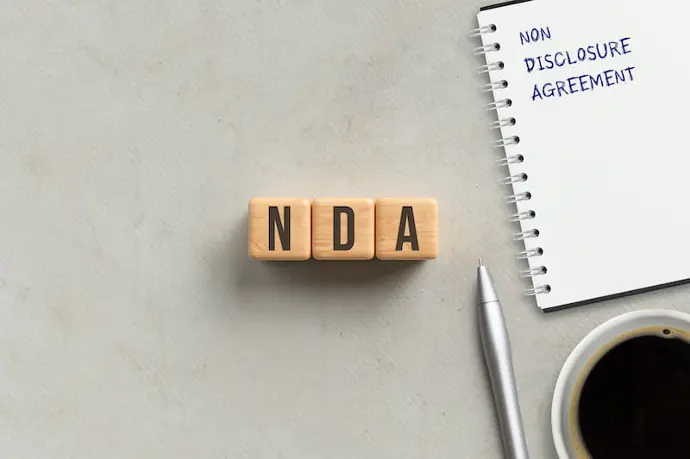Over the past several years, businesses have increasingly turned to trade secrets as an effective way to protect confidential information that gives them an edge over the competition.
From mom and pop coffee shops to multinational corporations such as Coca-Cola or Twitter, businesses are recognizing the important benefits that trade secrets offer over other intellectual property classifications such as trademarks, patents, and copyright.
This trend has accelerated since the 1980s with the passing of the Uniform Trade Secrets Act (UTSA) in states throughout the country, and has further accelerated since 2016 with the passing of the Defend Trade Secrets Act (DTSA) at the federal level.
For this reason, it's important for modern business to understand:
- What trade secrets are;
- What advantages businesses gain by protecting their valuable information as trade secrets, and;
- The various best practices businesses should follow when implementing and protecting their trade secrets.
In this article, we'll cover all of these important topics from the perspective of attorneys practicing in Virginia.
What are Trade Secrets?
Trade secret laws exist at both the federal and state levels, and generally serve to protect a company's "secret sauce" from the prying eyes of their competition.
The term "trade secret" has a variety of definitions depending on its use and the scope of the laws which define it.
For example, Virginia's version of the Uniform Trade Secrets Act (UTSA) defines a trade secret as follows:
"Trade secret" means information, including but not limited to, a formula, pattern, compilation, program, device, method, technique, or process, that:
1. Derives independent economic value, actual or potential, from not being generally know to, and not being readily ascertainably by proper means by, other persons who can obtain economic value from its disclosure or use, and;
2. Is the subject of efforts that are reasonable under the circumstances to maintain its secrecy.
Va. Code § 59.1-336
The federal Defend Trade Secrets Act of 2016 (DTSA) defines trade secrets in a similar fashion:
As used in this chapter...the term "trade secret" means all forms and types of financial, business, scientific, technical, economic, or engineering information, including patterns, plans, compilations, program devices, formulas, designs, prototypes, methods, techniques, processes, procedures, programs, or codes, whether tangible or intangible, and whether or how stored, compiled, or memorialized physically, electronically, graphically, photographically, or in writing if—
(A) the owner thereof has taken reasonable measures to keep such information secret; and,
(B) the information derives independent economic value, actual or potential, from not being generally know to, and not being readily ascertainable through proper means by, another person who can obtain economic value from the disclosure or use of the information.
18 U.S.C. § 1839, from Chapter 90–Protection of Trade Secrets
Essential Requirements of a Trade Secret
These definitions, combined with the other definitions enacted at the state and federal level, give rise to a few key requirements for a valid trade secret:
- First, the secret should display some degree of novelty that is not readily ascertainable to other people or businesses in the same space. For example, a trade secret could contain special "know-how" derived from independent effort on the business's part (such as a list of business contacts or a file containing proprietary code).
- Second, trade secrets must have economic value, whether actual or potential, and this value must be tied to the information remaining secret. For example, a bakery's secret cookie recipe may count as a trade secret since the bakery would likely experience economic losses if the bakery across the street started using the exact same recipe.
- Third, a trade secret must, by definition, be a secret. This means it is not generally known or readily ascertained by proper means by people who can obtain economic value from its use. If the information is easy to access or common knowledge, then it's not a secret.
- Fourth, the owner must exercise reasonable efforts to maintain secrecy of the information. This means that the business must take reasonable steps to keep the information away from prying eyes. Documents such as non-disclosure or non-compete agreements are common ways to keep your business's most valuable information secret, especially when combined with technical actions such as locking information behind password-protected accounts or similar measures.
Put simply, trade secrets are novel pieces of information, processes, or tools that give businesses an edge over their competition in a way that would not be viable should the information become public.
What may be Protected as a Trade Secret?
Businesses will often protect their intellectual property by registering as a trademark their name and logo or adding copyright information to their website and print materials.
These trademark and copyright laws exist to protect specific types of intellectual property (such as logos, brand names, and websites) so as to differentiate a business (and its work) from the competition.
In a similar fashion, trade secret laws protect valuable technical or confidential information that your business uses to get a leg up over the competition.
Importantly, the barrier for a piece of information to be a trade secret is actually surprisingly low, meaning that many different types of information can count as a trade secret.
In fact, mere specifications (such as ingredient measurements) and other similar "know-how" can count as trade secrets under the right circumstances.
As a few quick examples, all of the following can be protected under intellectual property law as trade secrets:
- Chemical formulas and the steps taken to produce them.
- Recipes, including ingredients, proportions, cooking times, and other techniques.
- Code, databases, and other technical information that's central to a business's core product.
- Product designs and the steps for producing a particular product.
- Customer and contact lists, whether digital or on paper.
- Pricing schedules and other financial information that falls under trade secret laws.
- Manufacturing techniques and other technical information.
- Marketing strategies, such as online bid strategies for ads, remarketing campaigns, ad design templates, and more.
- Negative information, such as knowledge of what doesn't work in your space or business.
Basically, virtually any information that (1) is novel in nature, (2) has immediate or potential economic value, (3) is not generally known by your competitors, and (4) that the owner has implemented reasonable efforts to keep a secret can count as a trade secret.
As long as it meets these four requirements (as explained in the sections above), the information can count as a trade secret.
Why are Trade Secrets Becoming More Important for Modern Businesses?
Due to a variety of reasons, U.S. businesses have ramped up their focus on trade secrets as a viable way to protect important pieces of intellectual property.
In fact, according to some reports, the number of trade secret cases that go to court has risen drastically in the past two decades, with 10% to 30% increases year-over-year from 2000 until around 2017 (at which point the number of cases has remained relatively steady at around 1,000 per year).
While every business certainly chooses to use this form of protection for different reasons, their reasoning largely focuses on a few key advantages trade secrets have over other forms of intellectual property:
- Ubiquity and Flexibility — Virtually every business already has trade secrets, such as core computer programs, marketing lists, or financial information. Often, this information doesn't fall into the normal classifications of trademark, patent, or copyright, so many businesses are choosing to protect this information as a trade secret instead. For example, while a patent may not protect a specific algorithm or computer program, such information could likely be protected under current trade secret laws.
- Reliability — Put simply, it can sometimes be hard (and expensive) to register a trademark, patent, or copyright. By keeping the information in-house, businesses can save money (through attorneys and filing fees) and time (by immediately gaining the protections instead of waiting a year or more for government approval).
- Security — As a secondary point to the Reliability point above, many businesses also choose to keep things in-house because it allows them to keep the information secret. While patents and copyrights generally require registration and publication, trade secrets are, by their nature, secret. This means that limiting the number of parties involved can proportionally increase the security of the information itself.
- Longevity — Whereas trademarks, patents, and copyright protections often come with timelines you have to follow for renewal, trade secrets are free from many of the time-base restrictions found in other forms of intellectual property. After all, the information will remain a trade secret as long as you can keep it a secret, so it's technically possible to keep the information in-house indefinitely (as some businesses, such as Coca-Cola, have done with their secret recipes).
- Stronger Protections — Finally, it's important to note that trade secrets can situationally provide stronger protections than other types of intellectual property. For example, in rapidly-changing fields such as digital marketing or other technology-based industries, trade secrets can provide a necessary flexibility of providing protections now rather than later. Similarly, in industries that are based on tradition and long-term protection, trade secrets can provide many protections even after the 20-year limit on patents runs out.
While there are certainly other benefits to trade secrets besides the ones listed above, these five qualities describe the general reason that more and more businesses are choosing to protect their valuable information as trade secrets.
Can I Register a Trade Secret?
Generally speaking, no. Trade secrets are actually the only form of intellectual property that you cannot register with an official U.S. government agency.
Instead, trade secrets are protected through reasonable measures taken by the business itself.
In the event that someone misappropriates or improperly conveys a trade secret to a competitor, the business may bring a private civil case against the individual that leaked the information (and/or the business that accepted it).
An essential element of this case will be whether or not the business took "reasonable measures" to keep the secret safe.
For this reason, and due to the civil nature of such a case, the normal preventive measure of registration is instead replaced with the specific actions a business should take to protect their secrets.
Put another way, your trade secret will only last for as long as you can successfully safeguard it through your own actions, as detailed in the next section.
How to Protect Your Business's Trade Secrets
If you run a business you most likely have multiple employees or contractors working for you.
You may wonder how you can prevent such groups of people from copying, using, benefiting from, or disclosing your trade secrets without your permission.
The answer is that trade secret laws confer two general protections to businesses:
- First, trade secret laws enforce a confidential relationship between the employer and their employees.
- Second, trade secret laws protect the business in cases where the knowledge is gained by another party through "improper" means.
Basically, businesses can prevent people from copying, using, or benefiting from their intellectual property by enacting a series of measures meant to keep this intellectual property private.
Basic Precautions to Take with Your Business's Trade Secrets
You can't just say that a piece of information is a trade secret and call it a day. Instead, businesses must take proactive actions to safeguard their trade secrets from their competitors.
For this reason, there are several best practices that businesses should follow in regards to protecting their trade secrets.
These best practices generally fall into three broad categories:
- Physical Security — Actions you take in the real world to protect secret information, such as locking important documents in a safe or marking such documents as "Confidential."
- Digital and Network Security — Actions you take on your company's network and online to protect your business's information, such as enabling two-factor authentication, setting up user permissions for key information, or creating policies that state trade secrets can only be kept locally (and not uploaded anywhere online).
- Legal Security — Often the most used precaution, these are actions you take with the advice of an attorney to proactively protect your valuable information through nondisclosure agreements (NDAs), noncompete agreements, and other legal documents.
In most cases, businesses will rely on a combination of all three of these categories to protect their vital information.
As stated above, the most common method is to include NDA or noncompete agreements in your employee onboarding process as a way of limiting their ability to disclose essential information.
Basic network precautions, such as enabling two-factor authentication on email accounts and business CMS portals, are another common method of keeping vital information secret.
Put simply, you need to take basic, affirmative steps to protect your secret in a way that's easily provable in court.
As we mentioned in the definitions section above, an essential element of a trade secret is the presence of affirmative actions taken to keep the information secret.
Being able to show, in court, that you took these basic steps will be an important element of your case should you have to bring a civil suit against someone who improperly acquired this information.
Advanced Measures to Take with Your Business's Trade Secrets
Most of the protections you'll need are covered in the basic precautions section above. However, there are also a few advanced measures that businesses can take to protect their intellectual property.
Generally, these measures revolve around the idea of introducing a third party into the mix as a way of auditing your existing trade secret protections.
For example, a business that develops and sells a computer program that they claim is a trade secret might hire an independent auditing firm to check how well they're following their own confidentiality guidelines.
Such a third party could also provide training to your business through seminars, powerpoint presentations, or other similar methods.
Finally, it's also advisable for businesses to include trade secret training sections in their onboarding documents and exit materials so employees are aware of the specific actions they should (and shouldn't) take in regards to trade secrets.
How to Deal With Improper Disclosures of Your Trade Secrets
Every state has laws which protect trade secrets from improper disclosure or theft.
Most of these laws are derived from the Uniform Trade Secrets Act (UTSA), a model act drafted by the Uniform Law Commission that has been enacted in 48 states, Washington D.C., Puerto Rico, and the Virgin Islands.
As of Massachusetts's recent adoption of the act in 2018, only New York and North Carolina have yet to vote the UTSA into law, though New York currently has a bill in the works as of January 8th of 2020.
Under the language in the UTSA adopted by Virginia, for example, businesses may petition the court to enjoin any actual or threatened misappropriation and bring a civil action against the individual who improperly disclosed the information.
In the event that the misappropriation was willful or malicious, the court may also award punitive damages of up to double the amount of damages incurred by the disclosure of the information (up to a cap of $350,000), in addition to reasonable attorney's fees.
For this reason, it's wise to speak with an attorney immediately if you believe that someone has improperly disclosed your intellectual property.
Even if this disclosure was unintentional, you can still petition the court to help you keep the information a secret, provided your case meets certain specific requirements.
Conclusion
As our economy shifts ever more towards the design and creation of intangible, intellectual property such as designs, programs, and technology, businesses should pay greater attention to the different legal tools available for protecting such ideas and processes.
Trade secrets are an increasingly important tool for protecting such valuable information, primarily due to their flexibility and the relative ease with which companies can implement strong legal safeguards.
In any event, it's always wise to speak to an attorney if you have any questions about how to best protect your intellectual property as a business owner.
Only an attorney can give you up-to-date information that's relevant to your specific case and jurisdiction.
Relevant Laws
Further Reading
Other Resources
- Trade Secrets, Global Intellectual Property Academy — An informative video from the U.S. Patent and Trademark Office that provides a short (~3 minute) explanation of international and domestic trade secret law. We would highly recommend you watch this video as a primer for further research.
- Trade Secrets, Cornell's Legal Information Institute — A quick overview of the absolute basics of U.S. trade secret laws, with an emphasis on the Uniform Trade Secrets Act that most states follow.
- Protecting Trade Secrets Through Copyright, Stephen M. Dorvee (1981) — A wonderful (though slightly outdated) article from the Duke Law Journal that outlines many of the basic legal elements of trade secrets in comparison to copyright law. This article further describes how copyright protection is limited when compared to trade secret protections, specifically in how trade secrets can protect underlying ideas rather than just the expression of those ideas.
- Trade Secrets: What You Need to Know, National Law Review — An article from the National Law Review on Trade Secret Basics. It strikes a nice balance between being informative yet not too long, and provides up-to-date information on the laws surrounding trade secrets.


